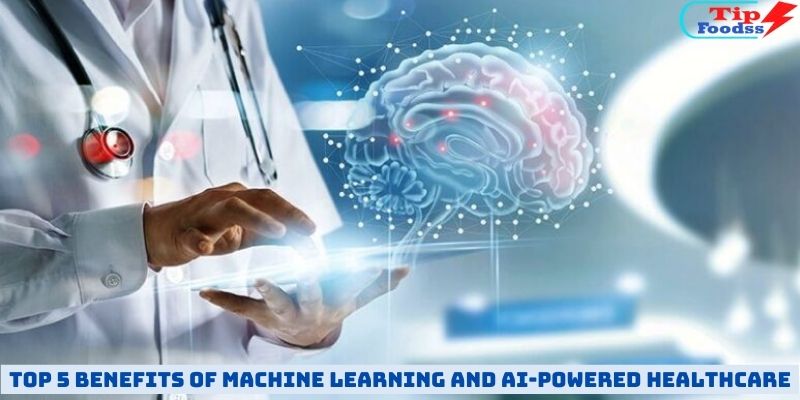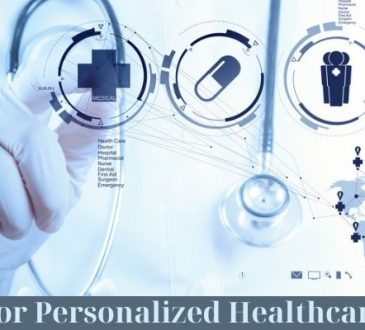Top 5 Benefits of Machine Learning and AI-Powered Healthcare
The way healthcare services are provided is changing as a result of artificial intelligence (AI) and machine learning (ML) and top 5 benefits of machine learning and AI-powered healthcare. Every area of the healthcare industry, including mundane jobs, data management, and medication development, is being improved by AI. Adopting AI and ML is a vital step for this sector because the healthcare industry is continuously changing and seeking for methods to better. This is the main driver behind the market entry of numerous artificial intelligence app development companies.
Patient interaction, diagnostic and treatment suggestions, and administrative tasks are some of the main applications of AI-ML in healthcare. As the amount of data in the healthcare industry keeps growing, AI and ML can aid in utilizing this enormous body of knowledge to provide proactive and intelligent services. Furthermore, in order to make decisions about diagnosis and treatment, healthcare practitioners can find hidden insights in the data. In this article, tipfoodss.com will discuss top 5 benefits of machine learning and AI-powered healthcare.
Role of AI and ML in Healthcare Sector
The use of machine learning algorithms and other cognitive technologies in a medical setting falls within the wide category of artificial intelligence (AI) in healthcare. AI is just the imitation of human intellect, which enables it to learn, reason, and make decisions or take actions. Machines that have AI built in can analyze medical data and take appropriate action. It helps us to forecast a specific result.
One of the most popular applications of artificial intelligence in healthcare is machine learning. ML enables robots and systems to comprehend data and find patterns without the need for human intervention.
Machine learning aids experts in the healthcare sector in making sense of the vast quantities of medical data that are created everyday within electronic health records. Finding patterns and insights that would not otherwise be possible with manual methods is made possible by machine learning algorithms.
Contents
Top 5 Benefits of Machine Learning and AI-Powered Healthcare
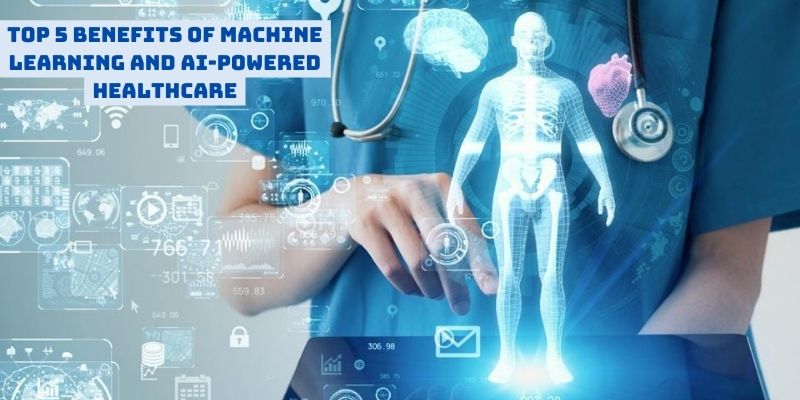
-
Clinical Decision Making-ML and AI-powered healthcare
Large amounts of clinical data can be compiled and examined by AI-enabled technologies, providing a more comprehensive picture of the patient’s health. These technologies greatly contribute to effective care outcomes by giving the medical team immediate access to real-time actionable information. Healthcare personnel can perform at their highest level thanks to automated data gathering and analysis.The amount of time and resources needed to examine and diagnose patients can be decreased with artificial intelligence. Additionally, compared to conventional methods, machine learning (ML) algorithms can identify danger faster and with greater accuracy. If implemented properly, these algorithms can automate inefficient and labor-intensive operations, accelerating diagnosis and minimizing diagnostic errors.
In general, AI and ML can facilitate more rapid and precise medical decision-making. You can also use AI app development services to get these advantages.
-
Enhanced Operational Efficiency and Performance-ML and AI-powered healthcare
The healthcare industry is a complex network of intricately intertwined systems and procedures. As a result, it is challenging to maximize asset use while also cost-optimizing. Artificial intelligence technology can probe into a large volume of data in the digital environment, which makes it incredibly valuable in this situation. The knowledge gained from data is useful for enhancing performance, raising productivity, and improving operations.
The combination of AI and ML is helpful for healthcare in the following ways:
- Enables medical facilities to set service priorities based on the severity of the patient’s condition and the availability of resources.
- The performance of the revenue cycle can be enhanced by optimizing workflows such as claim authorisation and prior denials.
- To efficiently use human resources when there is a large workload, automate the repeatable jobs.
Administrators and healthcare professionals may make a lot more crucial decisions quickly and with higher quality by strategically utilizing AI and ML. The incorporation of AI and ML in the creation of healthcare apps has recently increased as well due to its potential to revolutionize the medical experiences of both patients and clinicians. Thus, the use of diverse therapeutic services can be made easy with the help of AI and ML.
-
Quality AI-Powered Surgeries-ML and AI-powered healthcare
AI-assisted surgery is one of the most significant developments of artificial intelligence in the healthcare field. Due to AI’s increasingly sophisticated capabilities, there is an increase in surgical robotic applications that can precisely implement even the smallest movements. Complex surgeries can be carried out by AI-powered robots, which shortens the time patients must wait for the complete treatment. Additionally, it lessens the chance of surgical complications, blood loss, and adverse effects.
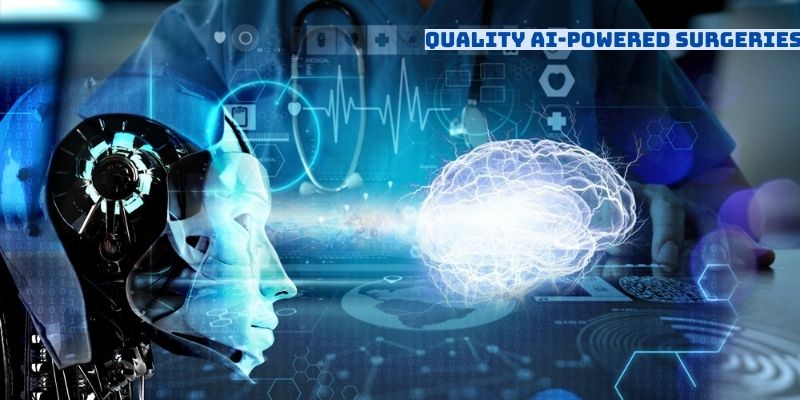
Additionally, machine learning is essential to surgical procedures. Surgeons and other medical personnel have access to real-time information about patients’ current conditions. Clinical practitioners can use this information to quickly and shrewdly decide on the best procedures to assure positive results.
-
Personalized Treatment-ML and AI-powered healthcare
Pharmaceutical businesses can collect, store, and analyze massive volumes of data more quickly than with manual methods by combining AI and machine learning skills. It enables businesses to do research more quickly using genetic variation data. The development of tailored medicines can proceed more quickly because to the quick collection of data from a large number of patients. Additionally, the data segmentation provides a clear picture of how different patient types respond to various treatments. Pharmaceutical companies can therefore choose the proper dosages and amounts of medications for various patients.
-
Automated Health Records-ML and AI-powered healthcare
Traditional patient records are rigid, challenging to use, and expensive to set up. Additionally, these records have a significant impact on how well patients are treated throughout their whole medical journey. These medical records give medical practitioners the data they need to manage patients’ care and make the best therapeutic decisions. Other advantages of precise and up-to-date health records include assuring prompt reimbursement for rendered services and reducing malpractice concerns.
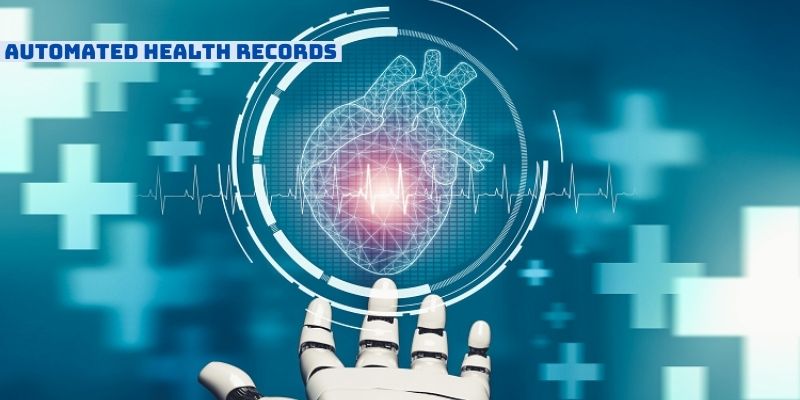
AI is essential for creating digital scribes with machine-learning algorithms, which are utilized for health records. It is possible to take a doctor-patient interaction, decode the text, and add the appropriate information to the patient’s electronic medical record (EMR). Data entry can be made quicker, easier, and more reliable by using an optical character recognition (OCR) system that is ML-based.
For this reason, scribes are being used by more and more hospitals to schedule appointments. As a scribe may record the visit, doctors are better able to concentrate on the patient.

